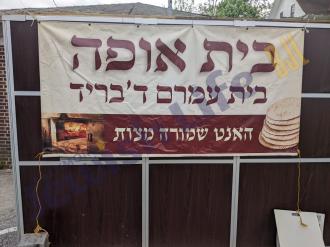Vateizei Dina. And Dina went out. Today, the mere words conjure up thoughts of negativity and of the recklessness of Dina in venturing out of the protective environment of her home. Indeed, it is hard to find many words in the Torah which have drawn such a magnitude of interpretation, most which use this tragic episode as a warning against women straying to far into the outside world. As is often the case though, those who use a tragedy to advance an agenda are often missing the more profound lesson which can be found with a simple reading of our most trusted commentary, Rashi.
Rashi comments that Dina is referred to as “Bas Leah” but not “Bas Yaakov” since Leah too had “gone out”. Rashi (Vayishlach 34:1). Rashi is referring to the famous episode where Rochel purchased the Dudaim - flowers from Leah in exchange for her night with their husband, Yaakov. The Pasuk goes on to say “Vateizi Leah Likraso”, And Leah went out to meet him. Chazal tell us that Leah went out to lead Yaakov to her tent so Rochel would not have to explain that she had traded her night with Yaakov for some flowers. Leah’s going out was clearly L’shem Shamayim and Rashi explains her reward was that Yissachar, a great Torah scholar, was conceived that night. (Rashi, 30:17) Further proof of Leah’s status as an exemplary Baalas Tznius comes from Shiras D’vorah, where all of the Imahos are praised for their Tznius. (Shoftim 5:24)
It is inescapable that the mida of “going out” is not intrinsically good or bad. Like every mida, it can be used in a multitude of ways. Leah used this mida to save Rochel some embarrassment and remained at her lofty level. Dina was not so fortunate. Regardless of what her motives were, the results were horrific. What then did Dina learn from Leah which could have led to such a catastrophe?
Children naturally copy their parents’ behavior. Dina saw that her mother Leah exhibited this characteristic of being “worldly” or someone who was comfortable being out in the world. Nevertheless, she did not understand that Leah’s motivation for doing so was always L’sheym Shamayim and never inconsistent with her status as one of our Imahos. How profound. Children often see what their parents do but do not always comprehend the intent of the parent behind the action. Whatever middos we and our children possess, proper chinuch requires that we must always emphasize the fundamental obligation to use them in a positive way.
“Vatezei Dina” personifies this lesson. It is not about going out or staying in, rather it is about understanding our obligations everywhere, all the time to do things for the right reasons. Perhaps if we spent less time labeling different midos and activities as “good” or “bad”, we would be Zoche to instill in our children the simple goal of using all of our Kochos to be M’kadesh Shaym Shamayim. In this way we can truly aspire to reach the level of our Imahos.















